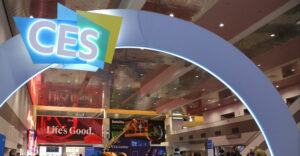
As founder, president and chief executive officer of custom PC maker Velocity Micro, Randy Copeland has seen a lot of change over his 15 years in the business. New consoles and online play were key additions to the industry. Perhaps most significant, however, is the purchase of competitors by PC giants Dell, which bought Alienware, and more recently Hewlett-Packard, which bought Voodoo.
Copeland, who now oversees one of the last independent PC manufacturers for gamers and other enthusiasts, contends his business model of using the latest and greatest components and providing ultra high-end PC support has been vindicated.
Going Mainstream
“It is finally being seen as the wave of the future, as opposed to hearing about the value of supply-chain management and economies of scale,” Copeland said. “I’m thrilled to see more awareness about the custom PC segment, not just for gamers but for creative pros, business PC buyers, multimedia enthusiasts, or anyone who needs a PC built to exacting standards, or has been disappointed by the reliability or tech support issues that often come with buying from a maker who churns out thousands of PCs an hour.”
TechNewsWorld talked recently with Copeland to find out more about his take on the state of the industry.
TechNewsWorld: What do the acquisitions of Alienware and Voodoo, by Dell and HP respectively, mean for the high-end, custom gaming PC space?
Randy Copeland:
Those buyouts have really helped to highlight the entire market segment, and made people recognize that the performance space is one of the most important areas in the PC market. The moves also helped introduce the custom segment to a much wider audience, to people who hadn’t really focused on PC vendors outside of the gigantic multinational [original equipment manufacturers].
TNW: What do the acquisitions mean for Velocity Micro, specifically?
Copeland:
The Alienware buyout has definitely been good for us. A lot of Alienware customers were rabidly anti-OEM, and we know for a fact we picked up some significant business from them. It’s too soon to tell whether Voodoo’s customers will have the same reaction to the HP buyout, but Voodoo was a very tiny player in this market to begin with. They may be able to gain market traction with the exposure this deal has given them.
Either way, both moves have been good for us in that they helped raise our profile in the general market, and highlighted our leadership position to those who have not been watching the changes in the past few years here. Velocity Micro will continue to offer genuine, authentic, ultra-performance systems and a customer-focused buying experience.
TNW: Do you think these brands lose all of their independence and much of their appeal in such deals?
Copeland:
I can’t speak to how those businesses will be run from an operational standpoint, but it’s up to the consumer whether they remain appealing companies to buy from. If they can both execute their business plans, and those plans include premium performance, appealing design, and world-class support, they should be able to weather the concerns some might have about their loss of independence to OEM parents.
TNW: What do today’s high-end, custom and gaming PC buyers want?
Copeland:
As always, they want the best performance their money can buy, which comes from top-shelf, cutting-edge components and expert hand-tuning. As when ordering a car, they also want to pick and choose which features and components their rig will have. They also want upgradeability. Not everyone can afford a (US)$6,000 quad-SLI system right off the bat, so buyers want to know they can easily upgrade the system over time as budget allows and as newer, better components come out.
They also expect that the machine has been tested for both functionality and performance before it leaves the shop. If something happens in shipping, we make it right. But they want to know that it was working optimally when the system builder signed off on it. Lastly, and most important to many, is the highest level of customer support and service. Our 24/7 in-house support is a major advantage to these customers.
TNW: What technologies help you deliver that?
Copeland:
It’s not so much about technologies as it is about relationships and expertise. Every premier system builder will eventually have access to the latest chips from Intel and AMD and the hottest GPUs (graphics processing units) from NVIDIA and ATI. Our relationship with those and other component makers means our buyers have access to those technologies first.
What we really bring to the table is our expertise. We’ve been doing this since 1992, so we understand case dynamics — airflow, heat dissipation and noise reduction for a high-end system running full bore. We also know that our type of buyer will eventually upgrade the system down the road, so we account for that in our design. Our product engineers are able to see what’s new from the major and minor component makers and determine which bring the benefits our customers would want.
TNW: What has been the effect of the three next-generation gaming consoles on the PC gaming market?
Copeland:
The buzz around the new consoles has certainly occupied a lot of the spotlight in the media. The consoles have been good for PC gaming in that it raises the awareness of gaming in general. PC gamers are a different breed than console gamers; in fact, we find most of our gaming customers have a console as well. Once you commit to a console, you’re stuck in time. PC gamers recognize that their PC can grow with them over time. Many customers have learned that the PC can still deliver the very best gaming experience in longer games, and upgrades to games are only available on the PC. Finally, the TV is still a limiting factor to most consoles, because it is not always easy to create an immersive environment to play games from the family room sofa.
TNW: What about cross-platform game development and online play? Have they had an impact?
Copeland:
Online game play has definitely had a huge impact. It has kept a lot of players in the space who might otherwise have gotten bored with simply playing against a machine. The interactive, dare I say “social” aspects of online gaming are a real boon to the industry going forward. It also allows for a constantly changing in-game experience that is just not possible within the confines of a DVD.
TNW: What are the advantages of PCs in this setting?
Copeland:
I’ll get letters from the console fanatics on this answer, but a PC is just faster than a console. Maybe on the day of launch a console will have the fastest CPU and GPU available, but that edge will last for a month. A good PC platform lets you continually upgrade, tune, and modify, so you never reach its limit. Again, the TV is also not an ideal setting for a truly immersive experience in many cases.
TNW: What’s the next big thing for high-performance, enthusiast-oriented desktop PCs?
Copeland:
Clearly, Intel’s upcoming quad-core Kentsfield processor will be a huge deal. Maybe not as big at launch as Core 2 Duo was, since that’s a much more mainstream CPU, but for high-end workstation apps, and certain games, with more to come, once they are written to take advantage of four CPU cores, quad core will show a real benefit to end users. Also in the near term, Nvidia’s upcoming GPU will be interesting to see this holiday season. People have high performance expectations for it.
Thermal management, getting the heat out of new-generation systems, is also a major focus. We expect the components of the future will run much faster but hotter, and we have to get ready for these technologies now.
Longer term, I’m interested to see what the marriage of AMD and ATI holds in store. There’s potential there for some real synergies that could put AMD back on top in the enthusiast space.






















































Further to the earlier story by JAY LYMAN on Velocity Micro and the quoted paragraph from him " Unfortunately, we’ve had several reports from users who’ve had to make warranty claims after going through what they report as "very stressful experiences" with Velocity Micro hardware and tech support" unquote. I AM one of those unfortunate customers that purchased a high end laptop, which much to my dismay, failed to bootup within 6 months of use. Then, having returned it to them for warranty repair and after 4 weeks of sitting on it.. voila..it shows up on my doorstep with the same problem..no bootup! You would think they would of stress/bench tested it before shipping it out! Now,after consistant emails back and forth…they inform me to wait for a shipping label for rma to ship it back to their factory so they can sit on it for another 4 weeks? Well,after 2 weeks of holding my breath I’m still waiting for the shipping label to arrive. Here’s a quote from the ceo himself,Randy Copeland you ran in the same report ""I’m thrilled to see more awareness about the custom PC segment, not just for gamers but for creative pros, business PC buyers, multimedia enthusiasts, or anyone who needs a PC built to exacting standards, or has been disappointed by the reliability or tech support issues that often come with buying from a maker who churns out thousands of PCs an hour." He’s got it all backwards because I’ve had much better support from the "big guys" then he could only wish for!
So, my advice to anyone out there considering purchasing from Velocity Micro,go straight to a shrink and have your head examined!
PS. What IS Randy Copeland REALLY up to these days??
For about the last six months, we’ve been recommending Velocity Micro to our members and clients. We did so because early on, they performed well. In fact, they still appear to be providing excellent semi-custom built hardware as reported by a number of of our clients who recently acted on our recommendation.
Unfortunately, we’ve had several reports from users who’ve had to make warranty claims after going through what they report as "very stressful experiences" with Velocity Micro hardware and tech support. So back in May 2008, I charged one of our lead developers with the task of purchasing a moderately priced PC from them and putting it through it’s paces. I recently received his report that, after a few months of very odd problems with the machine that were initially blamed on the Vista OS, it became clear that the hardware was suffering some very subtle problems. So a warranty claim was made. That was the beginning of an agonizing process that, after almost five weeks of constant calling, has still has not resulted a cure.
What’s really unpleasant, is that we now have evidence that the machine we purchased to test, was not even the machine we paid for. We paid for a specific CPU model and received a lesser model. When confronted with this fact, VM support’s ONLY option was that we had to send the entire machine back to them and wait about three weeks for an unspecified resolution.
Frankly, Mr. Copeland’s claims of a comittment to providing an "excellent user experience" do not ring true.
While Velocity Micro clearly has some fine people working for them, it appears that Mr. Copeland has not seen fit to prioritize the more difficult problems so that they can be resolved quickly.
Our advice: Before you buy from Velocity Micro, be sure to grill the sales rep on the exact content of the WRITTEN warranty support, to ensure that the warranty promises are nothing more than a lot of empty promises.
Needless to say, we’re now a bit more guarded about recommending VM to any of our clients or users.
Anyone who would like to hear the details of our experience, please feel free to email us.